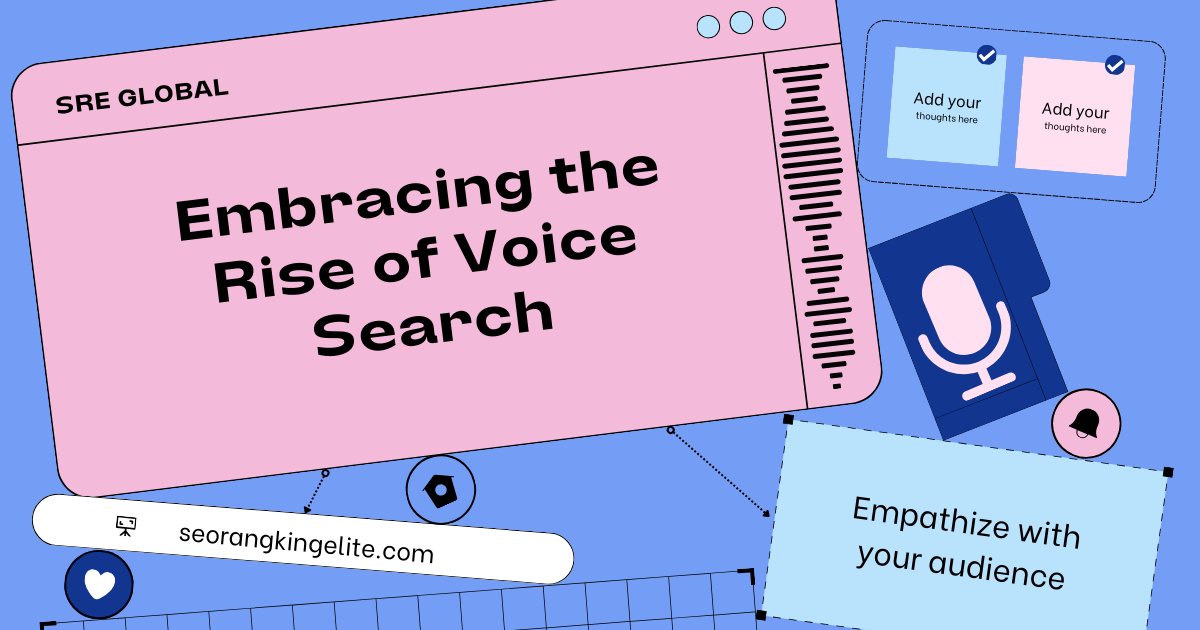Embracing the Rise of Voice Search Optimization
In the ever-evolving landscape of digital interaction, voice search has emerged as a game-changer, transforming the way users seek and receive information.
As technology advances, the prevalence of virtual assistants like Siri, Google Assistant, and Alexa has skyrocketed, creating a seismic shift in user behavior.
This paradigm shift necessitates a strategic approach to content creation, one that seamlessly integrates with the nuances of voice-activated queries.
1. Understanding the Dynamics of Voice Search
The Ubiquity of Virtual Assistants
With the proliferation of smartphones and smart speakers, virtual assistants have become ubiquitous companions in our daily lives. Users are no longer tethered to traditional search methods.
Instead, they rely on the convenience of voice commands to navigate the digital realm. Recognizing this shift is pivotal for businesses and content creators aiming to stay ahead in the competitive online landscape.
Natural Language Processing: A Decisive Factor
Natural Language Processing (NLP) lies at the core of voice search optimization functionality. Unlike traditional text-based queries, voice searches are conversational and tend to mimic human communication.
Crafting content that aligns with the nuances of spoken language is imperative. Long gone are the days of robotic keyword stuffing; the future belongs to content that resonates with the natural cadence of conversation.
2. Crafting Voice-Optimized Content: A Strategic Imperative
Conversational Keywords: The Cornerstone of Optimization
In the realm of voice search, conversational keywords reign supreme. Understanding how users phrase their queries verbally is key to optimizing content for voice search.
Anticipating and incorporating these colloquial phrases into your content positions you to capture the attention of the ever-discerning virtual assistant algorithms.
Snippet Optimization: Seizing the Spotlight
Featured snippets have become the holy grail of search results, and voice search is no exception. When users make a voice query, virtual assistants often pull information from featured snippets to provide concise and direct answers.
Crafting content that is not only informative but also snippet-friendly can catapult your website to the forefront of voice search results.
3. The Future is Now: Strategies for Voice Search Domination
Local SEO: A Hyper-Focused Approach
As users increasingly utilize voice search for local queries, local SEO takes center stage. Ensuring that your business information is accurately and comprehensively represented across online platforms.
It surely will enhances your chances of being recommended by virtual assistants when users seek nearby services or information.
Schema Markup: Elevating Visibility
Implementing Schema Markup is a potent strategy to enhance the visibility of your content in voice search results. By providing search engines with explicit information about your content.
Then you increase the likelihood of being featured as a relevant and authoritative source in response to vocal inquiries.
5. Pioneering the Voice-First Frontier
As we stand at the precipice of a voice-dominated era, the need to optimize content for voice search is not a choice but a strategic imperative.
Embracing the rise of voice search requires a nuanced understanding of user behavior, the integration of conversational nuances, and a commitment to staying ahead of the technological curve.
In this voice-first frontier, we position ourselves not as spectators but as pioneers, ensuring that our content not only adapts to change but leads the way into a future where vocal queries reign supreme.
RELATED BLOG ABOUT THIS TOPIC :
If you want to read other blogs about SEO, you can read more on SEO Ranking Elite.
Need SEO help? Contact SEO Ranking Elite, your premier SEO service agency. Partnered with the Madex Group and Madex Academy, we deliver effective strategies for SEO success, targeting businesses in Malaysia and Singapore.





